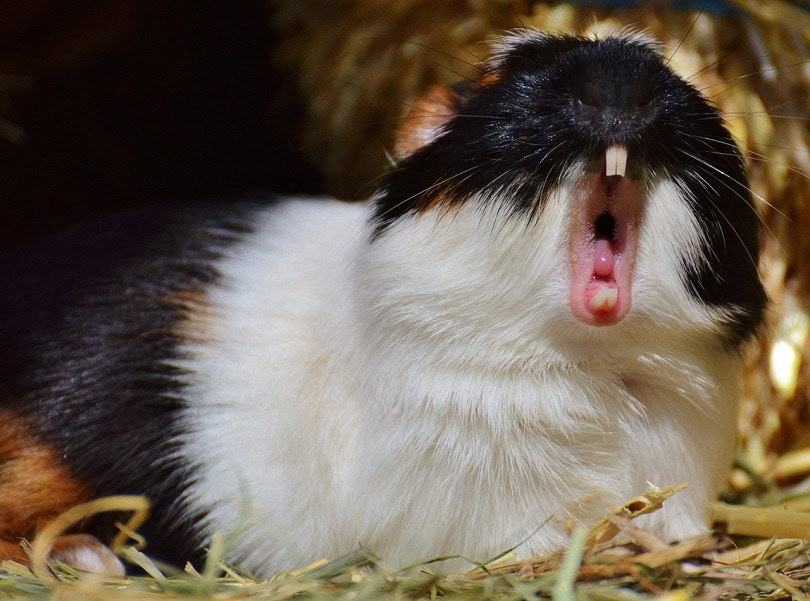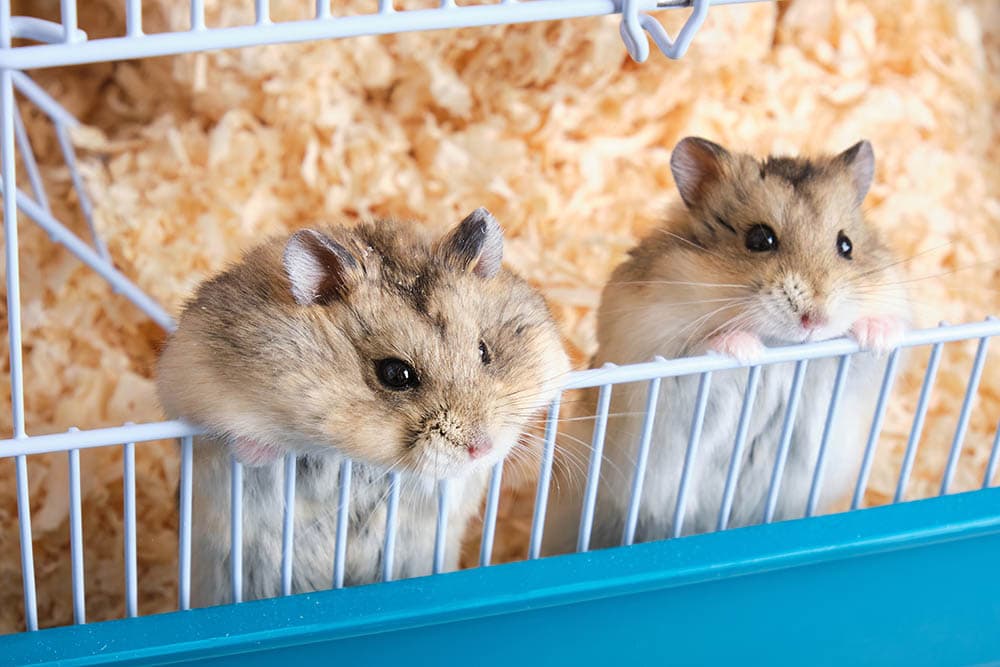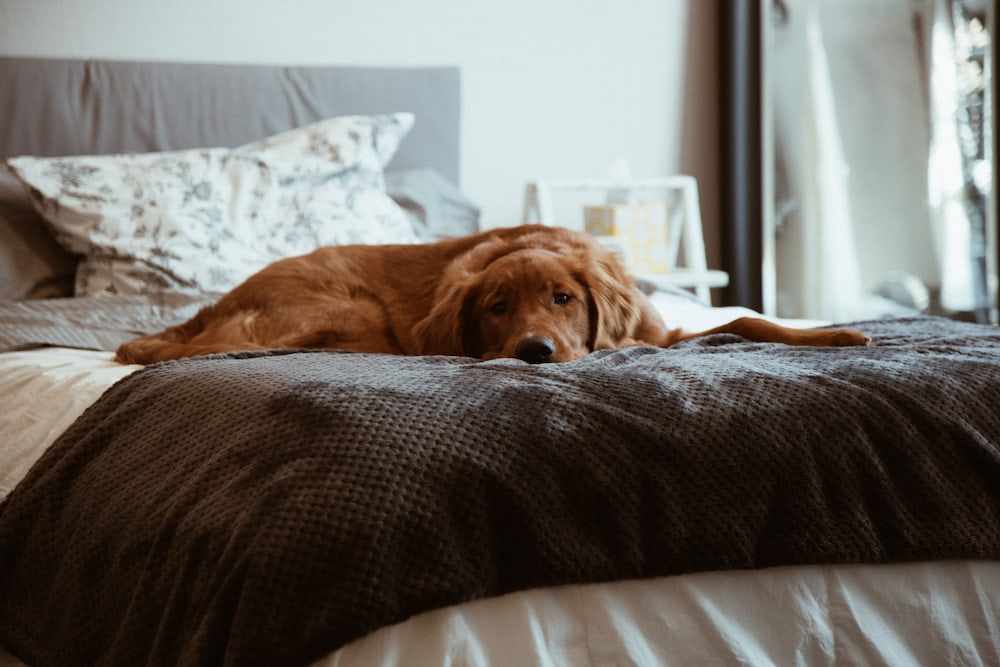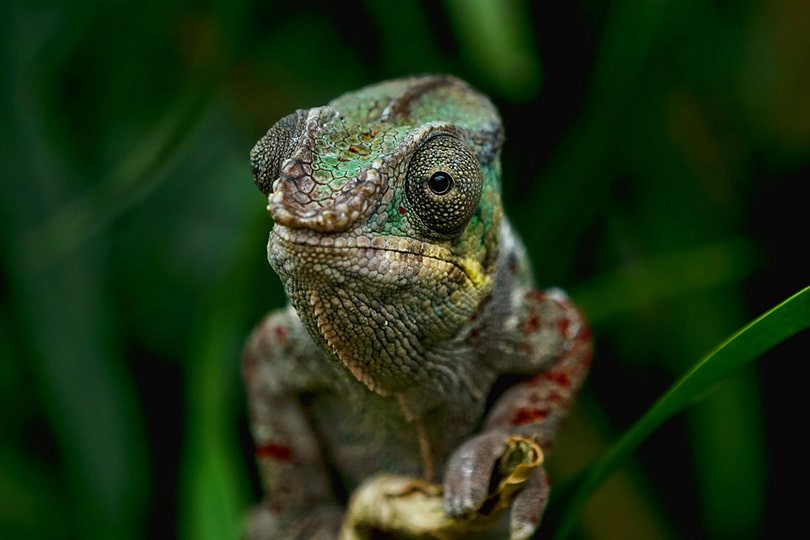VET APPROVED

The information is current and up-to-date in accordance with the latest veterinarian research.
Learn more »Click to Skip Ahead
If you have just purchased your first guinea pig and notice that it seems to be biting you or the objects in its cage, it’s common to have questions about why your pet is exhibiting this behavior and what you can do to prevent it. Do guinea pigs bite? What does it mean when guinea pigs nibble on your fingers? Yes, but you should know that its bite will not harm you.

Before We Start
Do guinea pigs bite? Yes, but a bite from a guinea pig will rarely break the skin, and it’s more of a nibble than a bite. It can be startling to have a guinea pig suddenly begin gnawing on your finger, but there is no danger, and these pets are even safe for children.

The 6 Reasons Why Guinea Pigs Bite
While no one is sure exactly why guinea pigs bite every time that they do it—or why any pet does the things that they do—there are good theories backed up by observations.
1. Exploration
Your guinea pig is a rodent, and like all rodents, it learns more about its environment by chewing (nibbling) things. It will often nibble on any new objects that you place into its cage—not to destroy them, but rather to learn about them. It will also nibble on things to learn its way around your home, and it can use this system to learn complex paths to food, and it will remember them for several months. This is not an aggressive bite.
You can’t prevent this behavior because it’s how the guinea pig adapts to their surroundings. The best thing to do is remove anything poisonous and let your pet do their exploring. It won’t damage anything, and once it learns its way, the nibbling will stop unless you introduce something new.
2. Food Smell
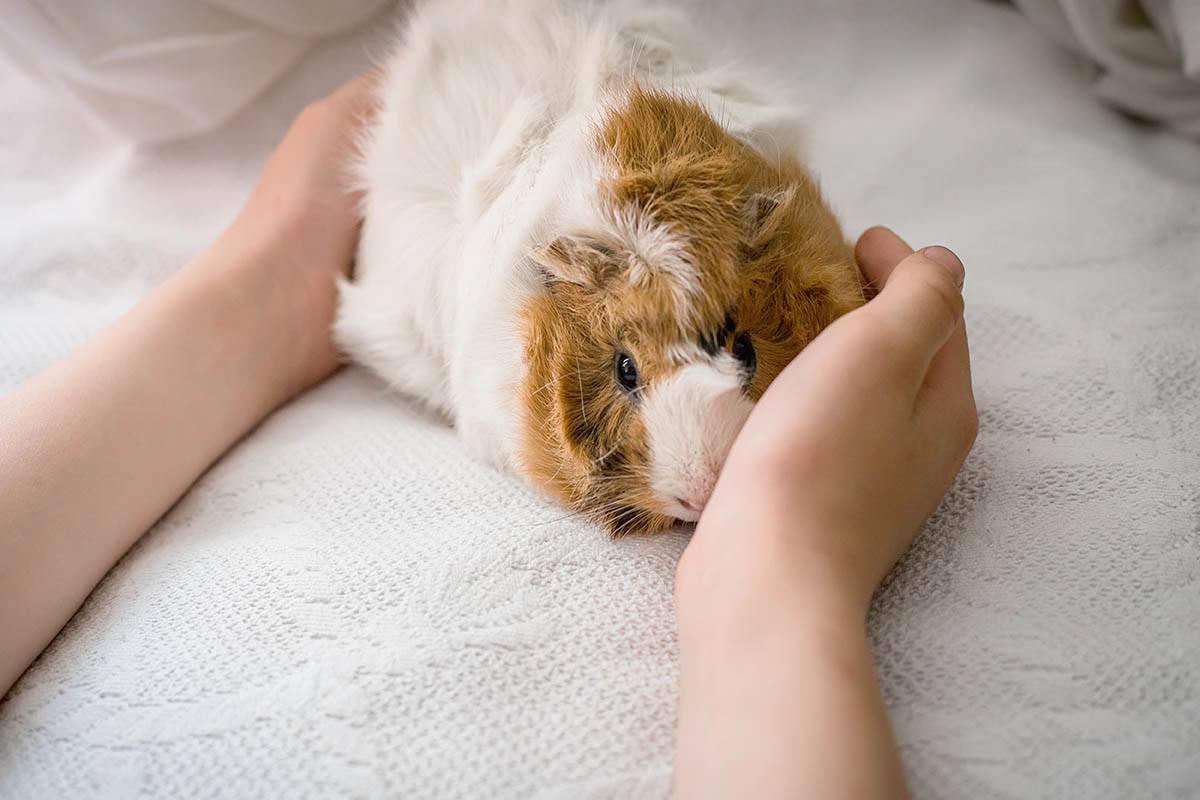
If your pet continuously nibbles on your fingers when you pick it up, even after it has had time to get to know you, there is a chance that you smell like food to it. Guinea pigs love fruits and vegetables, and if you have recently handled some, your pet might smell it on you and start to nibble.
The best way to prevent your guinea pig from mistaking your hands for food is to wash them before handling your pet. However, it’s important to remember that many soaps contain fragrances, like lilac and orange blossom, that can still trick your pet into thinking that your hands are food. Once you find a scentless brand that works for you, stick with it to minimize surprises for you and your pet.
3. Improper Handling
If your guinea pig is a baby or a stranger is handling it, there is a good chance that it feels uncomfortable and needs time to adjust. In the meantime, it might do extra nibbling to learn more and to convince you to put it down.
Your guinea pig will need time to adjust to its environment. If it’s a baby or a member of the family is holding it, limit the holding time to a minute or two, but do it several times a day so the pet can become accustomed to the person in short intervals. If the person is not part of the family, it’s better to restrict them from holding your guinea pig, especially if it doesn’t seem comfortable. Reducing interactions with strangers will help your pet feel safer and more at home.
4. Bathroom Need
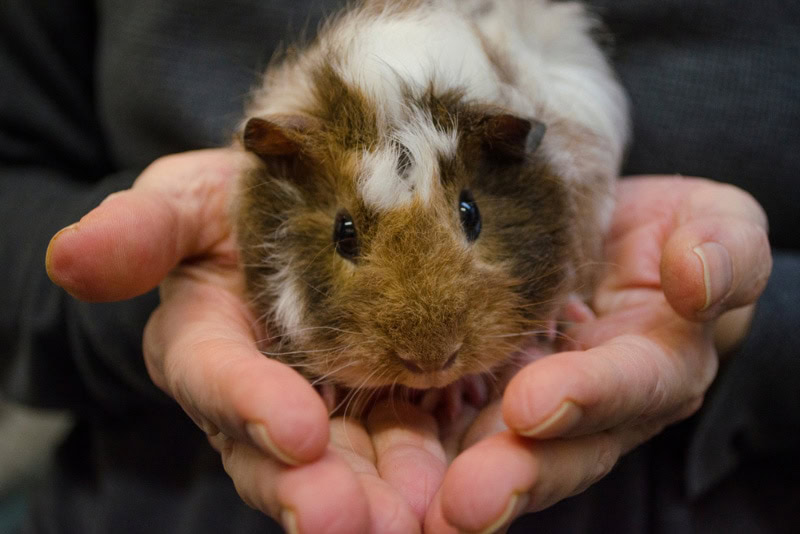
If you often handle your pet and feel that it knows who you are, it could just need to use the bathroom if it suddenly starts to bite you. Your guinea pig will try to warn you that it needs to use the restroom before it relieves itself in your hands. It’s important to learn this signal so you can return them to their cage in time to prevent an accident.
It’s better to learn the body language signs when your guinea pig needs to use the bathroom instead of trying to prevent it. If they stop signaling you, they may begin to relieve themselves wherever they want, and it can be hard to convert them back.
5. Fear
One of the more serious reasons your guinea pig might start to nibble on you is that it’s frightened. Since these pets are fleeing animals, they will only bite when feeling trapped or pushed into a corner.
The most common cause of this type of nibbling is when a stranger is attempting to lift the guinea pig out of the cage from one of the corners. As the strange hands are coming toward it, it tries to back away, but the cage walls block the way. Instruct the handler to only lift the animal from the center of the cage, and if it gets away, give it a few minutes to adjust before making another attempt.
6. Pain or Illness
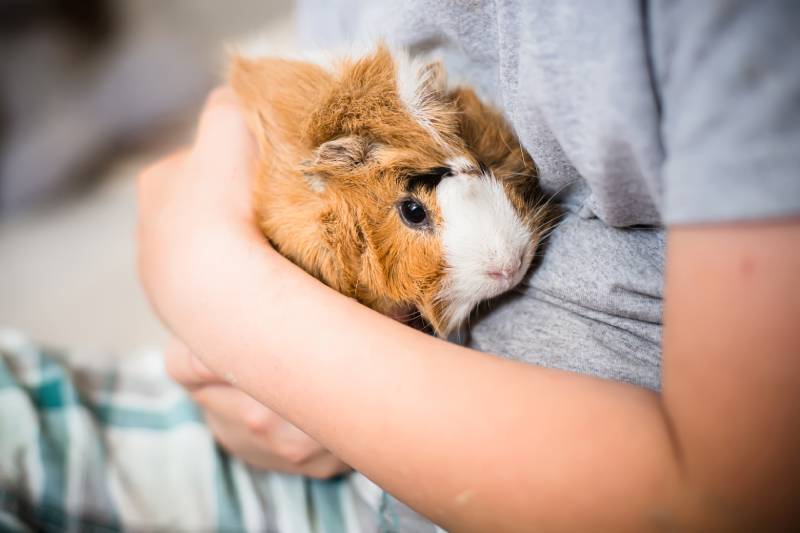
If you have handled your guinea pig for years and are sure the biting that you are experiencing is something new, it could be that your pet is not feeling well. Nibbling is a primary way to communicate when they feel pain or discomfort due to an illness or injury.
If you suspect that poor health is the reason that your guinea pig is nibbling on your hand or other surfaces, the best thing to do is to take it to the vet immediately. Your veterinarian will be able to run tests and quickly tell you what is wrong so you can get your pet back on track to good health.

Final Thoughts
The most likely reason your pet is nibbling/biting, if it is not an aggressive bite, is that it is simply exploring its environment and learning how to get around. A bite could also be caused by improper handling, your Guinea Pig trying to warn you about their need to eliminate, or your pet’s pain or discomfort, so being observant and trying to understand the trigger and the kind of bite is a must.
Related Guinea Pig Reads:
- Why Do Guinea Pigs Squeak? 9 Reasons for This Behavior
- Male vs. Female Guinea Pig: The Key Differences (With Pictures)
- Why Is My Guinea Pig Shaking? 5 Possible Reasons
Featured Image Credit: Pixabay
